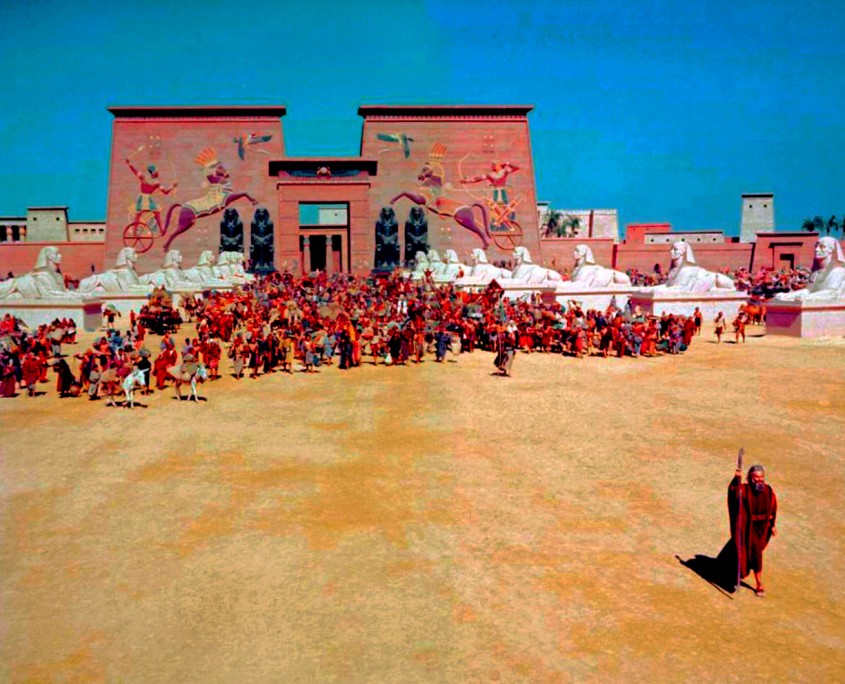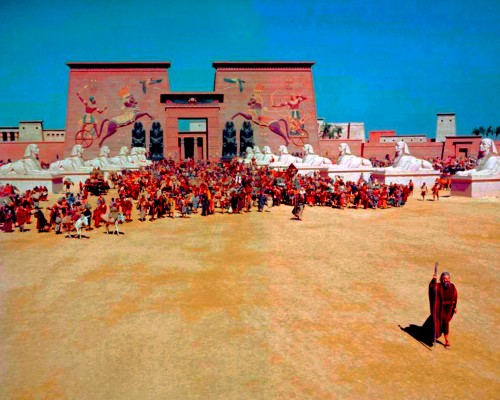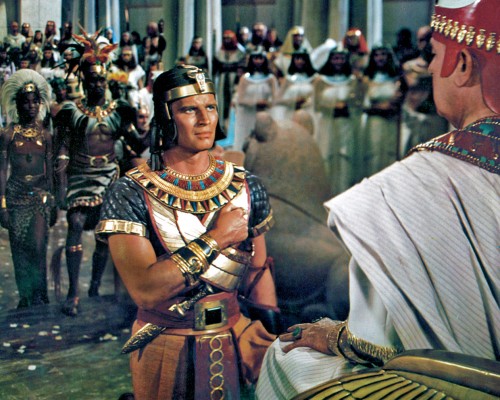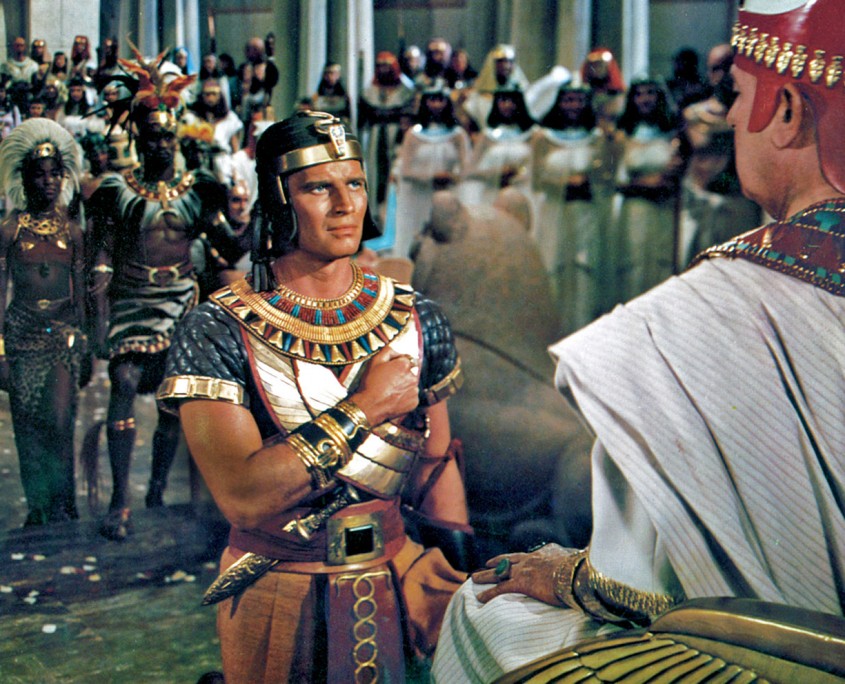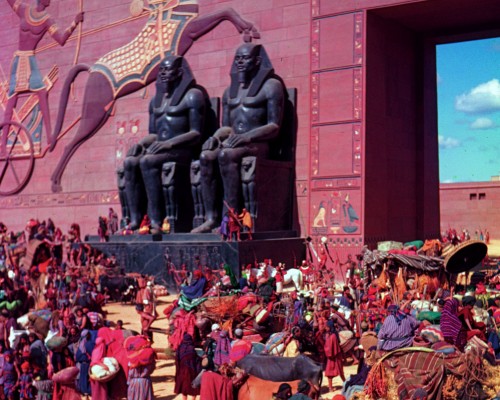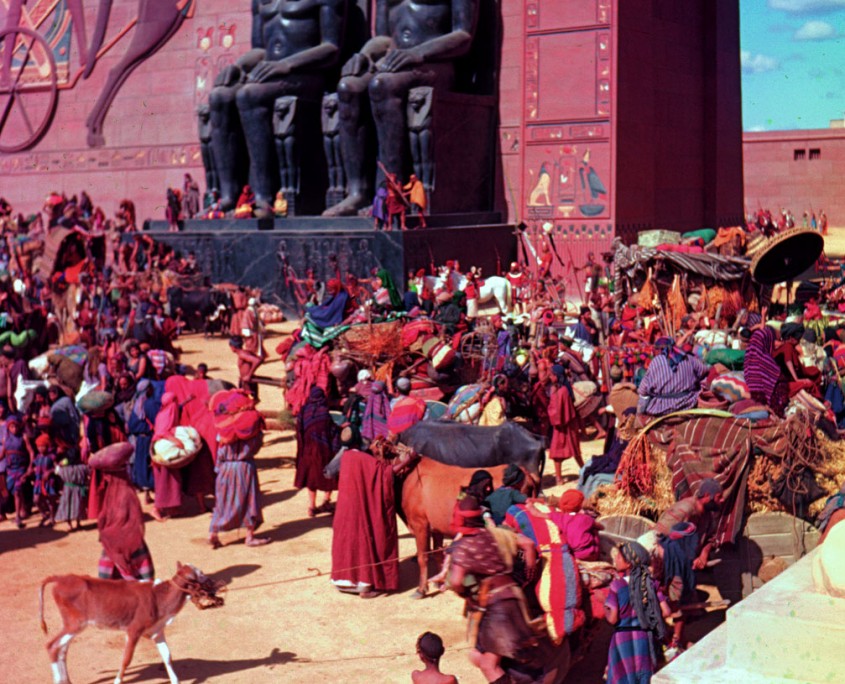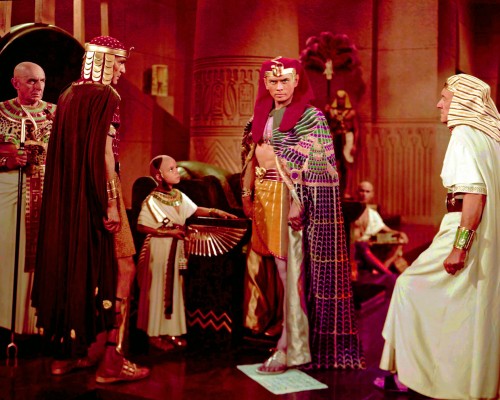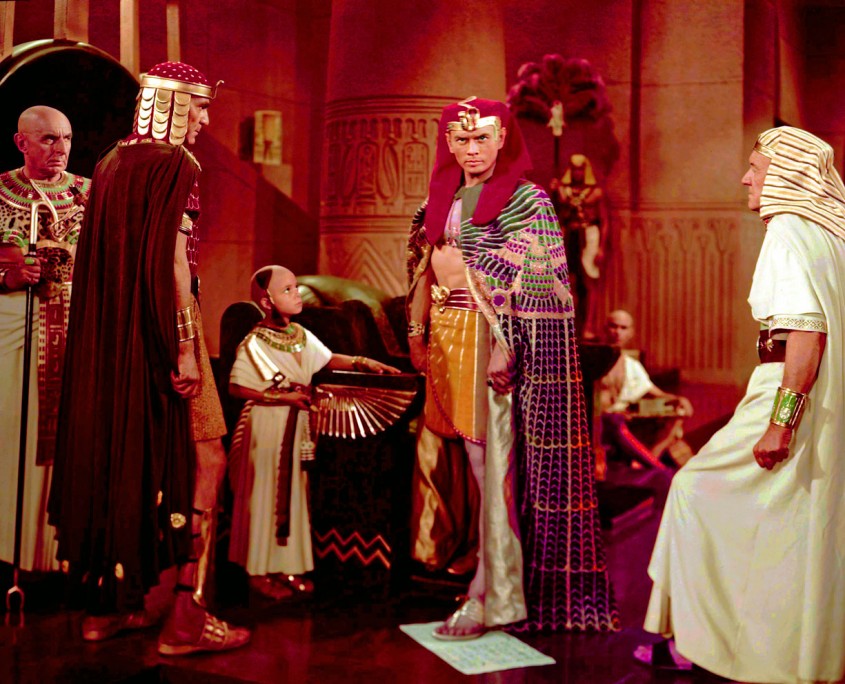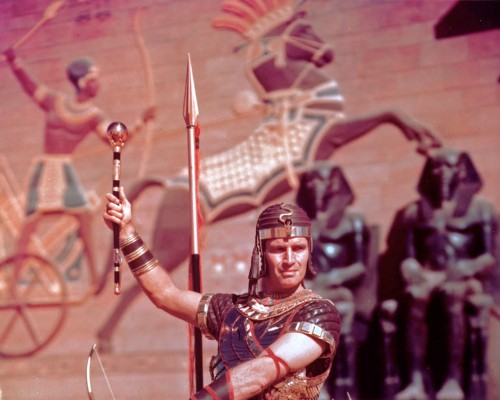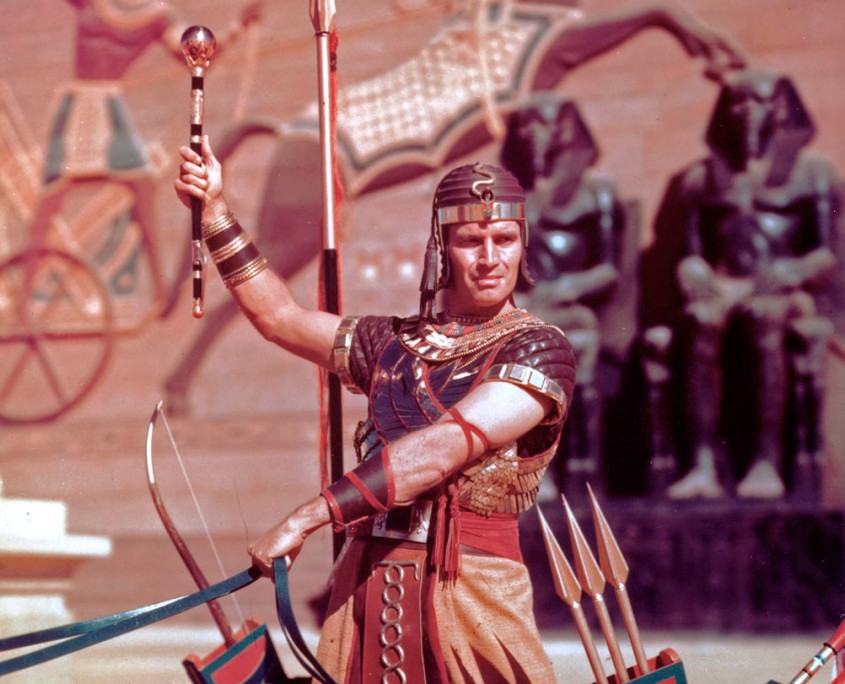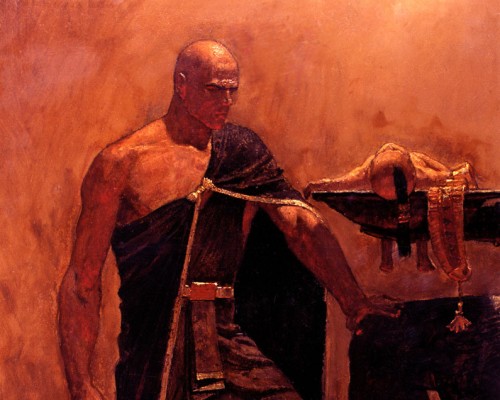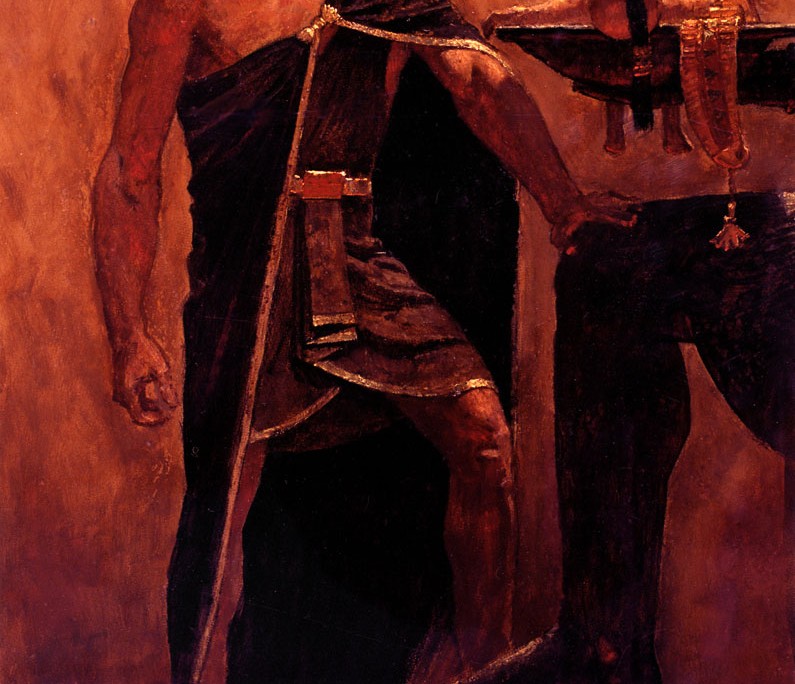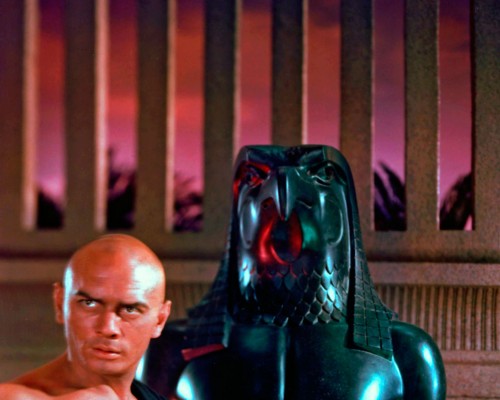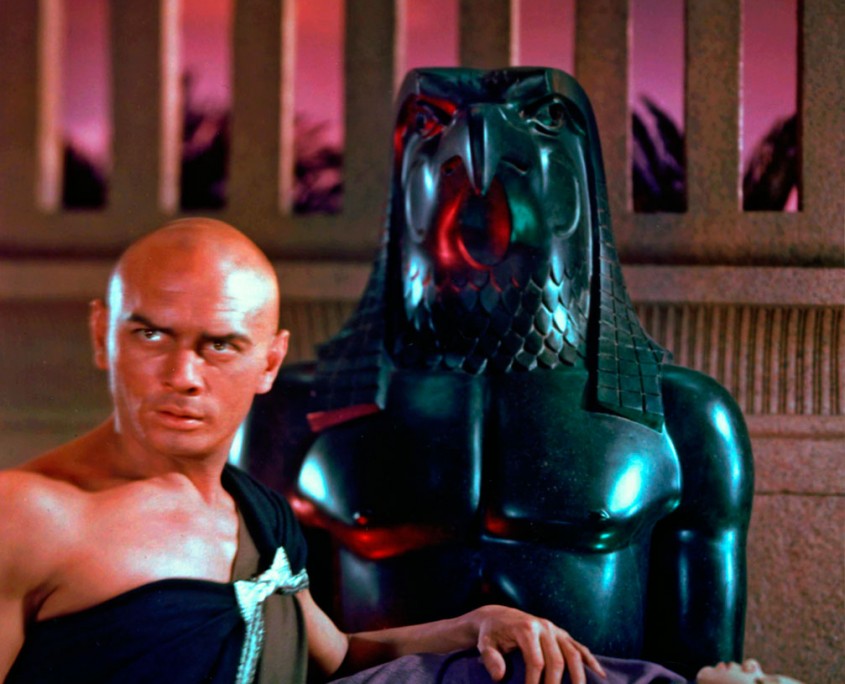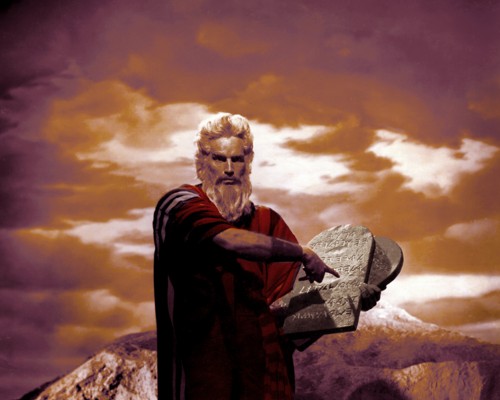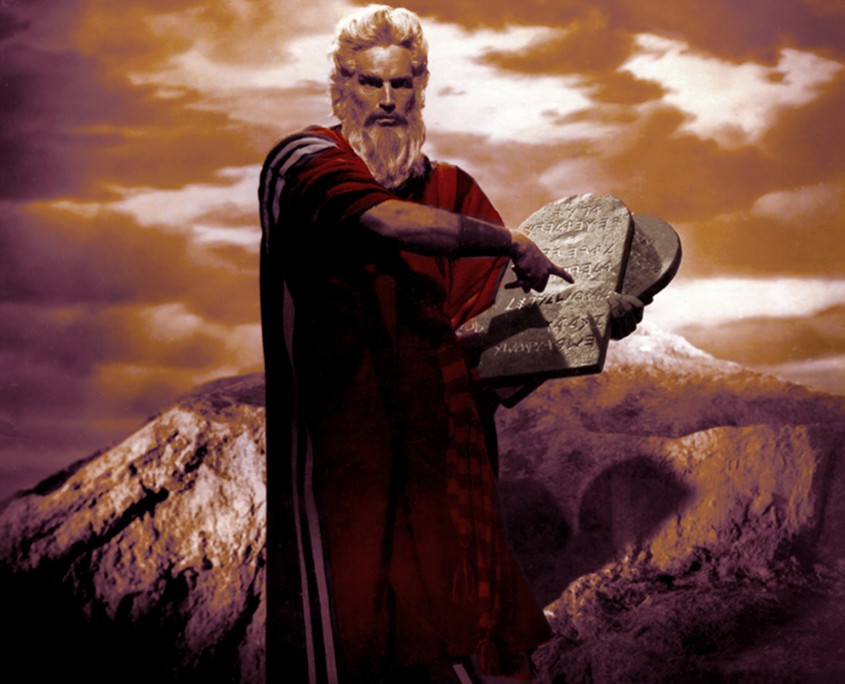Sound Feature: The Ten Commandments
Credits
Studio: A Cecil B. DeMille Production
Paramount Pictures
Premiered: November 8, 1956 (New York)
Featured Cast: Charlton Heston, Anne Baxter, Yul Brynner, Edward G. Robinson, Debra Paget, Yvonne De Carlo, Nina Foch, Martha Scott, Olive Deering, John Derek, Vincent Price, Sir Cedric Hardwicke, Henry Wilcoxon
Producer-director: Cecil B. DeMille
Screenwriters: Jack Gariss, Fredric M. Frank, Aeneas MacKenzie, Jesse L. Lasky Jr.
Sources: the texts of Eusebius, Josephus, Philo, the Midrash, and the Holy Scriptures
Modern literary sources: Rev. J.H. Ingraham’s Pillar of Fire, Rev. A.E. Southon’s On Eagle’s Wings, Dorothy Clark Wilson’s Prince of Egypt
Additional writer: Edmund Penney
Associate producer: Henry Wilcoxon
Assistant directors: Fouad Aref, Francisco Day, Daniel McCaulay, Michael Moore, Edward Salven
Unit director: Arthur Rosson
Art directors: Albert Nozaki, Hal Pereira, Walter Tyler
Cinematographer: Loyal Griggs
Additional cinematography: Wallace Kelley, J. Peverell Marley, John Warren
Editor: Anne Bauchens
Music: Elmer Bernstein
Theme
When a prince of Egypt is revealed to be the son of Hebrew slaves and is dispossessed, he begins a journey of emancipation.
Production Quote
“Cecil B. DeMille has shaped his plans for The Ten Commandments so that the Paramount picture will be ready to start late in 1953. It will be the story of Moses as a young man that DeMille will principally tell on the screen, and I won’t be surprised if he uses an actor like Charlton Heston, who did such an excellent job in The Greatest Show on Earth.”
– Edwin Schallert, “DeMille Shapes Plans for History of Moses,” Los Angeles Times, August 8, 1952
Reviews
“Mr. De Mille presents in this three-hour-and-thirty-nine-minute film, which is by far the largest and most expensive that he has ever made, a moving story of the spirit of freedom rising in a man, under the divine inspiration of his Maker. And, as such, it strikes a ringing note today. This is unquestionably a picture to which one must bring something more than a mere wish for entertainment in order to get a full effect from it. But for those to whom its fundamentalism will be entirely credible, it should be altogether thrilling and perhaps even spiritually profound.”
– Bosley Crowther, The New York Times, November 9, 1956
Artist Comment
“There was only one DeMille, and there wasn’t an actor in the world who didn’t want to work for him just once.”
– Anne Baxter, Intermission
“My ministry has been to make religious movies and get more people to read the Bible than anyone else ever has.”
– Cecil B. DeMille in Katherine Orrison, Written in Stone
“To Cecil B. DeMille’s everlasting credit, he was always aware of the responsibility that came with recognition. The world judges us by our art, and history judges us by our art. When all’s said and done, the only thing that survives of any civilization is its art.”
– Henry Wilcoxon in Katherine Orrison, Lionheart of Hollywood
Figures
The Ten Commandments cost $13,272,381.87. It grossed $90,066,230.00 (as of 1979).
(These figures have not been adjusted for inflation nor do they include the considerable profits realized from reissues, television syndication, and home entertainment formats.)

